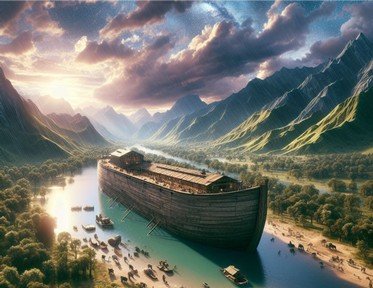
Summer Rain Trivia Quiz
Noah and the Great Flood
Test your knowledge on the story of Noah and the Great Flood! From building the ark to the covenant of the rainbow, explore the key events and characters in this timeless tale of faith, obedience, and divine promise. Good luck.
This is a renovated/adopted version of an old quiz by author mary74
An ordering quiz
by LeoDaVinci.
Estimated time: 3 mins.